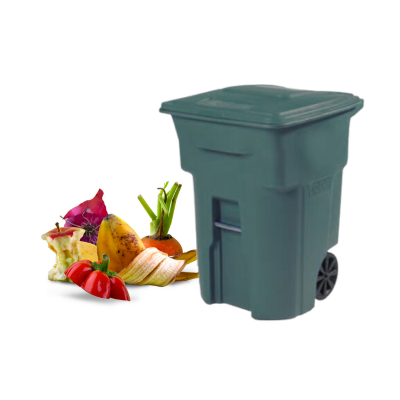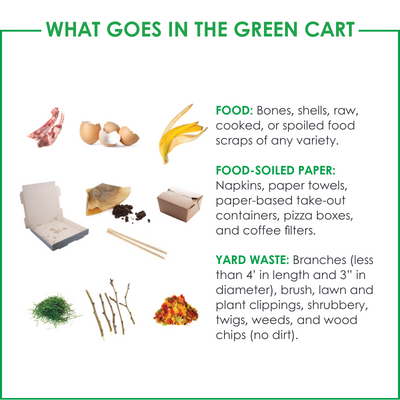SB 1383 – County
Did you know that organic waste makes up most of the landfilled material in California?
Great news, your new food waste recycling program starts on May 15, 2024!
Less Food Waste in Landfills Limits Greenhouse Gases!
The new state law SB1383 makes it mandatory for all residents to recycle their organics weekly.


Put Green Waste and Food Scraps in the Right Place!
One of the simplest ways to fight climate change is by recycling organic waste.
Over 50% of our landfills are comprised of organic waste: food, green waste, and food-soiled paper.
Organic waste emits 20% of the state’s methane, a climate superpollutant 84 times more potent than carbon dioxide.
We all need to do our part to reduce climate pollution, which is why recycling your organic waste is so important.
Composting in the County is easy!
How it works:
- Simply collect food scraps in a container.
- Empty the contents into your green organics cart.
- Set out your organics cart for weekly pickup.
MDRR recycling trucks transport separated organic waste to our Pittsburg facility for preprocessing. The material then goes to our partnering compost facility, who converts it into soil-enriching compost.

Need a Way to Store Your Food Scraps?
It’s likely that you already have something in your kitchen that you can use to store your food scraps, like a bowl, a coffee canister, or a yogurt tub that you can repurpose. If you prefer a kitchen pail, they are usually available for purchase at your local hardware store or through online retailers like Amazon, Wayfair, and Home Depot.
What is Senate Bill (SB 1383)
SB 1383 is a recent state law that makes it mandatory for residents to recycle their organics weekly.
The State has committed to reducing greenhouse gas emissions, improving human health, and creating clean jobs that support resilient local economies. Implementing the statewide plan under SB 1383 will reduce short-lived, harmful, super pollutants with significant warming impacts, and is essential to achieving California’s climate goals.
Organic waste, such as food scraps, yard trimmings, paper, and cardboard, make up half of what Californians send to landfills. Organic waste in landfills emits 20% of the State’s methane, a climate super pollutant 84 times more potent than carbon dioxide.
The law seeks to achieve a 75% reduction in the statement disposal of organic waste.
Frequently Asked Questions
For additional SB 1383 support, visit our FAQs page.